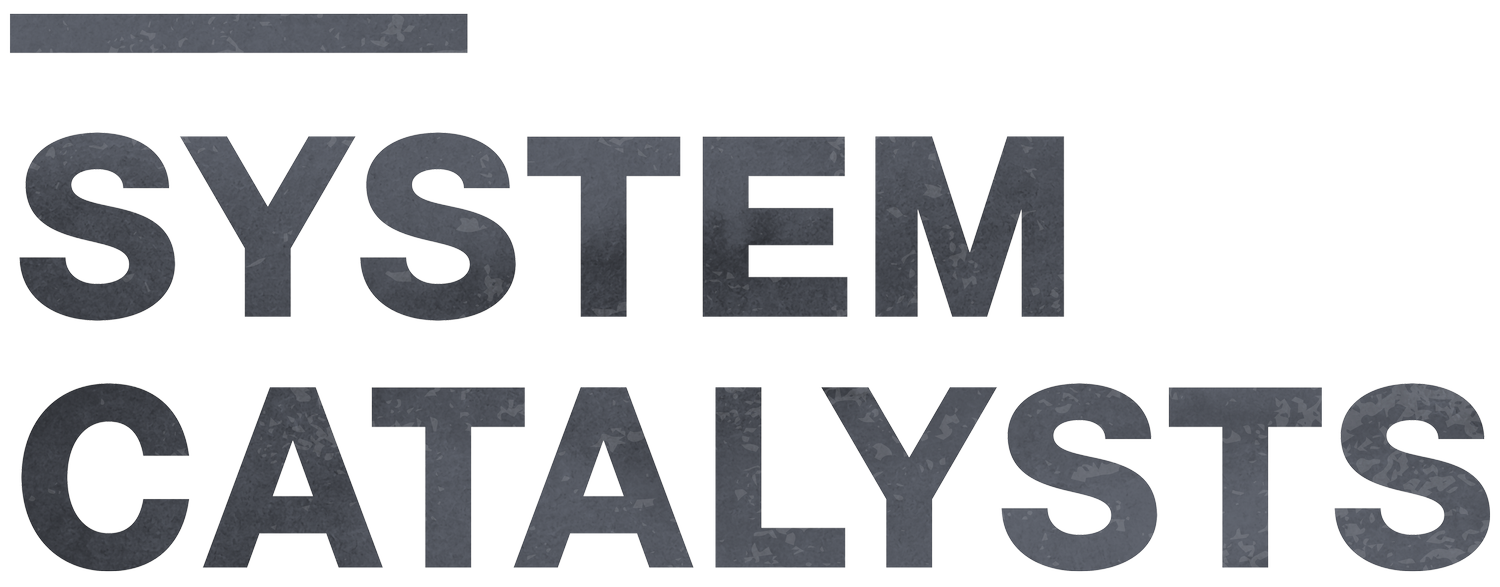The System Catalyst's Guide to Jeffersonian Dinners: Building Networks for Social Change
Since this TED talk a few years ago (and decades before), thousands of people have come together (8-15 diverse individuals at a time) for a Jeffersonian Dinner: a single, shared conversation around one table over a meal.
Unlike typical networking events or formal meetings, these gatherings create an intimate space where authentic connections form, innovative ideas emerge, and the seeds of collaboration take root. By design, they foster the kind of deep, meaningful dialogue that can spark systemic change.
This guide will walk you through the art of hosting Jeffersonian Dinners as a System Catalyst—someone dedicated to creating positive change through strategic relationship-building and collaborative problem-solving. Whether you're working to transform education, healthcare, environmental conservation, or any other complex system, you'll discover how this time-tested format can help you build the networks and insights needed for lasting impact.
Why Every System Catalyst Should Master the Art of the Jeffersonian Dinner
As a System Catalyst, your role is to affect change by connecting diverse stakeholders, fostering trust-based partnerships, and allowing locally-driven solutions to emerge. But how do you actually create these connections in practice?
Enter the Jeffersonian Dinner – a powerful tool that naturally aligns with the System Catalyst approach to social change.
The Natural Alignment
Thomas Jefferson knew something that modern System Catalysts have rediscovered: transformative change happens when you bring the right people together in the right way. The Jeffersonian Dinner format creates conditions that mirror the core principles of system catalysis:
Network Building: Just as System Catalysts work to connect different sectors and stakeholders, Jeffersonian Dinners bring together 8-15 diverse individuals who might never otherwise meet.
Managed Egos: System Catalysts need to ensure no single voice or solution dominates. The Jeffersonian format explicitly prevents any "big kahunas" from controlling the conversation.
Emergent Solutions: Both approaches prioritize letting solutions emerge from dialogue rather than imposing predetermined answers.
Trust Building: System Catalysts know that lasting change requires trust-based partnerships. Jeffersonian Dinners create intimate settings where authentic connections can form.
How to Host a System Catalyst Jeffersonian Dinner
1. Strategic Guest Curation
As a System Catalyst, your guest list is crucial. Look for:
People working on different aspects of the same system
A mix of practitioners, funders, policymakers, and community voices
Individuals who bring diverse perspectives but share a common interest
People with the capacity to act on emerging opportunities
2. Setting the Foundation
Choose a quiet, comfortable venue where everyone can hear each other
Arrange seating to facilitate single-table conversation
Plan for 2.5 hours of focused discussion
Consider having a skilled moderator (this could be you or another System Catalyst)
3. Crafting the Opening Question
Your opening question should:
Connect to personal experience rather than abstract theory
Relate to the system you're working to change
Be specific enough to elicit stories but broad enough to allow diverse responses
Create emotional connection while maintaining focus on purpose
Example questions for System Catalysts:
"What collaboration taught you the most about creating change?"
"When did you first realize the system needed to change?"
"Share a moment when unlikely partners created unexpected impact."
4. Facilitating System-Level Dialogue
Guide the conversation through three levels:
Personal stories and experiences
Shared patterns and insights
Opportunities for collective action
Keep the focus on:
Identifying leverage points in the system
Surfacing unexpected connections
Building shared understanding of challenges
Discovering complementary resources and capabilities
5. Capturing Momentum
End the evening by:
Having each person share one connection or insight they want to pursue
Identifying specific opportunities for collaboration
Planning concrete next steps
Setting up mechanisms for follow-through
6. Strategic Follow-Up
Within two weeks:
Share contact information and key insights
Facilitate promised connections
Schedule individual follow-up conversations
Begin weaving the new relationships into your broader system change effort
Best Practices for System Catalysts
Stay Purpose-Driven: Keep the focus on the system you're working to change while allowing organic connections to form.
Practice Deep Listening: Pay attention to both explicit offers of collaboration and subtle opportunities for connection.
Build on Momentum: Use insights and relationships from one dinner to inform who you invite to the next.
Think Long-Term: View each dinner as part of your broader strategy for system change, not as a standalone event.
Document Learning: Keep track of what works and what doesn't in bringing different stakeholders together.
Common Pitfalls to Avoid
Don't rush to solutions – let them emerge naturally
Avoid turning the dinner into a fundraising event
Don't let the conversation become too abstract or theoretical
Resist the urge to control or direct the outcomes
Don't forget to follow up – momentum is precious
Conclusion: The Power of Purposeful Connection
As a System Catalyst, your effectiveness depends on your ability to bring people together in ways that generate new insights, build trust, and create momentum for change. The Jeffersonian Dinner format provides a structured yet organic way to do exactly that.
By mastering this tool, you can create spaces where unlikely collaborators find common ground, where new possibilities emerge, and where the seeds of system change take root.
Remember: some of the most significant social changes have started with simple conversations among the right people in the right setting. Your next Jeffersonian Dinner could be the catalyst for exactly that kind of transformation.
Ready to host your first System Catalyst Jeffersonian Dinner? Download our planning checklist and question guide to get started.



